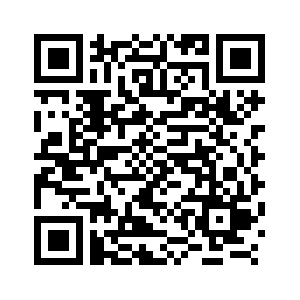LANZHOU, April 1 (Xinhua) -- Chinese researchers have proposed a quantum battery (QB) concept to realize remote charging, effectively solve the problem of energy dissipation, and achieve durable and efficient performance in quantum batteries.
Quantum batteries make use of quantum effects to store and supply energy, which may outperform their classical counterparts, but there are still challenges in this field. One is that the environment-induced decoherence causes energy loss and aging in QBs, and the other is that charging is inefficient due to the decreasing of the charger-QB coupling strength with increasing distance.
In recent years, the growing demand for energy has stimulated academic interest in the research of transformative energy storage and supply devices.
The QB concept was initiated by physicists in countries such as Poland and Belgium, and followed by their counterparts all over the world. They hoped to develop QBs that were smaller, with stronger charging power and higher charging capacity by using quantum effects and a bottom-up atom manufacturing process.
Quantum batteries, storing energy from light in the quantum states of atoms and molecules, could theoretically charge much faster than conventional devices. However, interactions between QBs and their environment tend to cause the devices' delicate quantum effects to break down, reducing its ability to store energy.
"Any quantum system cannot be absolutely isolated from its outer environment, which inevitably induces unwanted decoherence to the system," explained An Junhong, professor at Lanzhou University.
Using the constructive role of decoherence, the researchers from the Hubei University, the Innovation Academy for Precision Measurement Science and Technology (APM) of the Chinese Academy of Sciences (CAS), and the Lanzhou University devised a way to harness those interactions to charge, rather than deplete, the battery.
They proposed placing the charger and battery, which can take various formats, including an atom in a high-energy state, in a rectangular metal tube.
By applying an electromagnetic field throughout the tube, the researchers put the battery, charger and tube environment into a single quantum state. This would allow the charger to exchange energy with the battery without exposing the system to disturbance.
The scheme, which has not yet been tried, could work with the battery and charger placed up to 10 centimetres apart. It should result in batteries that don't lose their efficiency over time, according to the researchers.
Their study has been published in the journal Physical Review Letters.
An Junhong highlighted that their device is completely safe and harmless as the electromagnetic field is always confined within the waveguide and the QB's energy storage, free from electrochemical reactions, promotes infinite reusability without environmental pollution.
The next step for the researchers is to scale their QB scheme. "More specifically, we plan to develop a many-body QB model working in the way of remote wireless charging. This could permit us to efficiently incorporate the superiority of quantum entanglement in enhancing the charging power, charging capacity, and the extractable work of a remote-charging and anti-aging QB," said An. ■



